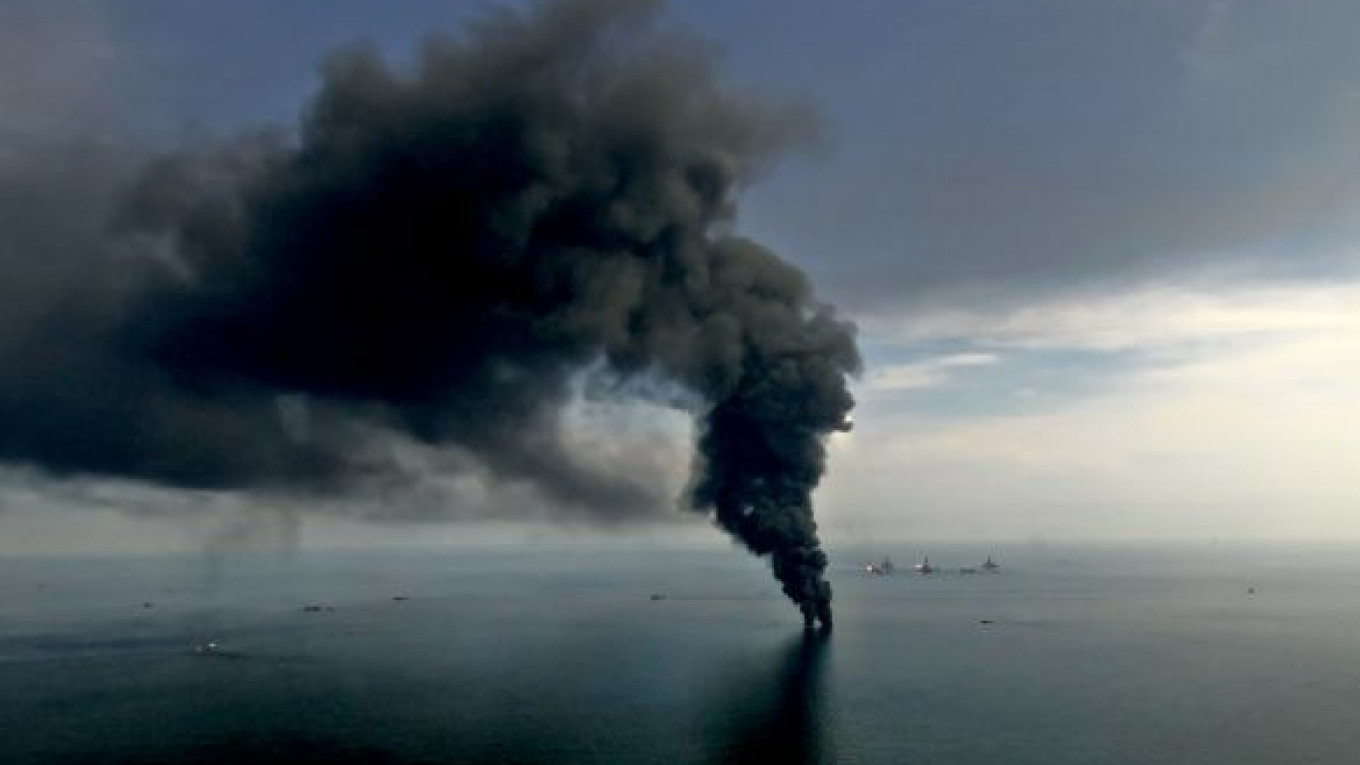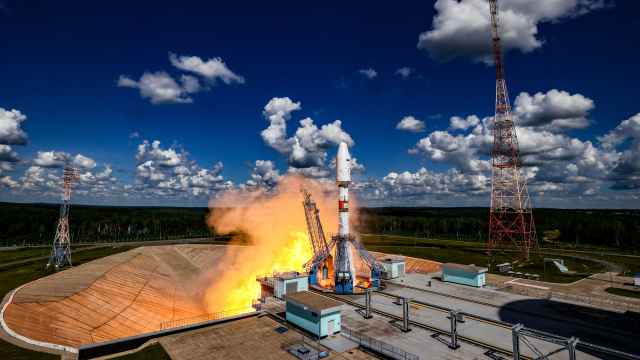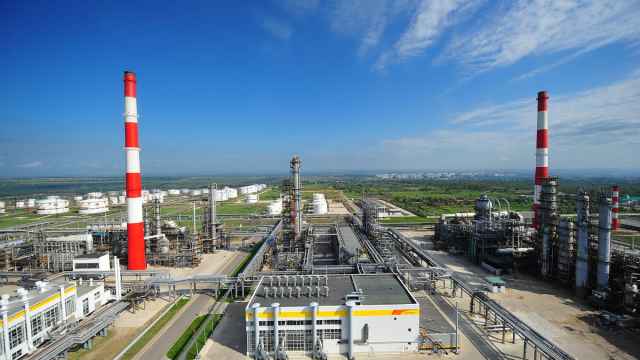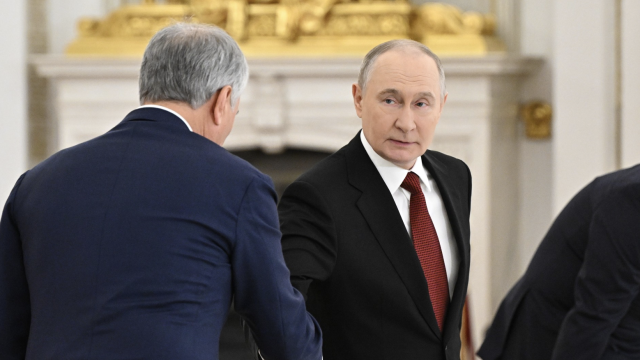Russian environmentalists will appeal to BP and Rosneft shareholders to thwart the companies' plans to drill for oil in a remote part of the Arctic, amid concerns that a spill in the icebound sea could be unreachable for up to nine months.
“We will work with shareholders and the general public to make sure everyone understands how risky this is,” said Sergei Knizhnikov, coordinator on environmental policy in the oil and gas sector at WWF Russia.
On Friday, BP and Rosneft announced plans to explore and develop a 125,000 square kilometer area of the Kara Sea on Russia's continental shelf.
The three blocks the two companies will explore — EPNZ-1, 2 and 3 — are only navigable 100 days a year because of ice, and environmentalists fear that a spill at the end of the drilling period would be impossible to tackle until the spring thaw.
“There is no technology today that can clean up oil in ice conditions,” Knizhnikov said.
“If there's a spill, we'll be able to see black ice from space,” warned Ivan Blokov, campaign director at Greenpeace Russia.
Prime Minister Vladimir Putin tried on Friday to make a virtue of BP's association with the Gulf of Mexico oil disaster last summer by saying the company had gained “valuable experience” cleaning up oil spills.
But the greens say there are still unanswered questions about BP's response to the Gulf spill, and point out that just last month Greenland refused BP a permit to drill in its Arctic waters. Rosneft's record is not untarnished either — it had 7,526 oil spills in 2009, Blokov said.
The remote Kara Sea is a refuge for polar bears, walruses and several commercial fish species.
Igor Sechin, Rosneft's chairman and a deputy prime minister, said Friday that development would “comply with the highest standards of environmental protection” and that the two companies would set up a research center to develop new technology in St. Petersburg.
A spokesman for BP told The Moscow Times on Monday that the company “is interested in developing the Arctic in an environmentally responsible manner and we believe that we can carry out this exploration program safely and responsibly.”
A Message from The Moscow Times:
Dear readers,
We are facing unprecedented challenges. Russia's Prosecutor General's Office has designated The Moscow Times as an "undesirable" organization, criminalizing our work and putting our staff at risk of prosecution. This follows our earlier unjust labeling as a "foreign agent."
These actions are direct attempts to silence independent journalism in Russia. The authorities claim our work "discredits the decisions of the Russian leadership." We see things differently: we strive to provide accurate, unbiased reporting on Russia.
We, the journalists of The Moscow Times, refuse to be silenced. But to continue our work, we need your help.
Your support, no matter how small, makes a world of difference. If you can, please support us monthly starting from just $2. It's quick to set up, and every contribution makes a significant impact.
By supporting The Moscow Times, you're defending open, independent journalism in the face of repression. Thank you for standing with us.
Remind me later.






